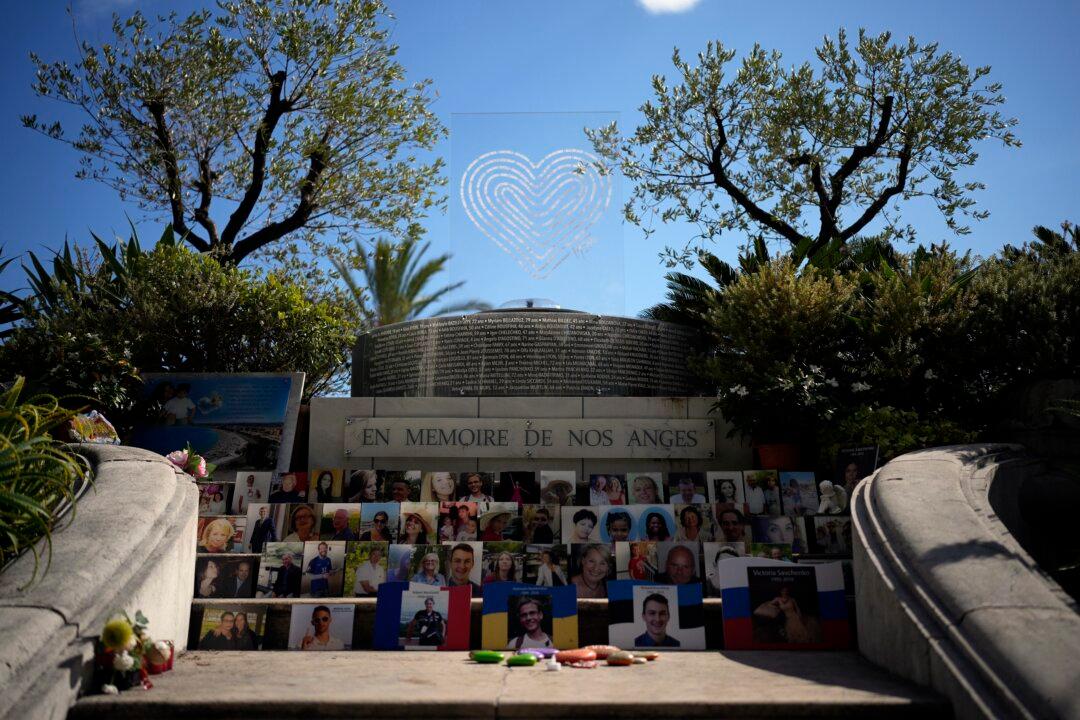PARIS—Former French President François Hollande told a special terrorism court on Monday that the man who drove a truck into a crowded beachfront in Nice on Bastille Day six years ago, killing 86 people, was a terrorist who had gone undetected by security services despite France being on high alert for extremist attacks following the ISIS massacres in Paris.
Thousands of people had packed Nice’s famed boardwalk on the Mediterranean coast on July 14, 2016, to celebrate France’s national holiday. Shortly after the end of a fireworks display, the truck careered through the crowd for two kilometers (1.25 miles) like a snowplow, slamming into person after person. The final death toll was 86, including 15 children and adolescents, while 450 others were injured.





